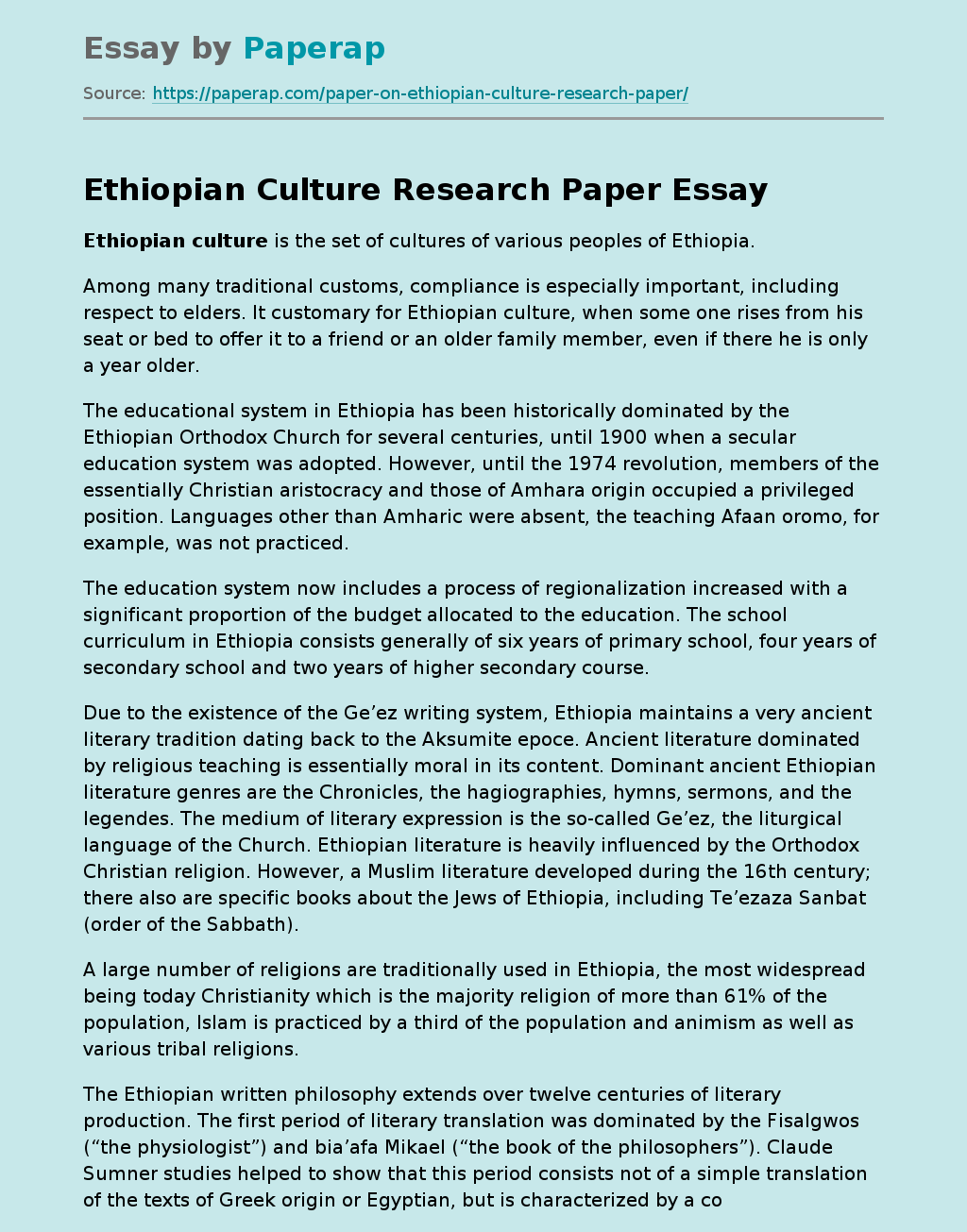Ethiopian Culture Research Paper
Ethiopian culture is the set of cultures of various peoples of Ethiopia.
Among many traditional customs, compliance is especially important, including respect to elders. It customary for Ethiopian culture, when some one rises from his seat or bed to offer it to a friend or an older family member, even if there he is only a year older.
The educational system in Ethiopia has been historically dominated by the Ethiopian Orthodox Church for several centuries, until 1900 when a secular education system was adopted.
However, until the 1974 revolution, members of the essentially Christian aristocracy and those of Amhara origin occupied a privileged position. Languages other than Amharic were absent, the teaching Afaan oromo, for example, was not practiced.
The education system now includes a process of regionalization increased with a significant proportion of the budget allocated to the education. The school curriculum in Ethiopia consists generally of six years of primary school, four years of secondary school and two years of higher secondary course.
Due to the existence of the Ge’ez writing system, Ethiopia maintains a very ancient literary tradition dating back to the Aksumite epoce. Ancient literature dominated by religious teaching is essentially moral in its content. Dominant ancient Ethiopian literature genres are the Chronicles, the hagiographies, hymns, sermons, and the legendes. The medium of literary expression is the so-called Ge’ez, the liturgical language of the Church. Ethiopian literature is heavily influenced by the Orthodox Christian religion. However, a Muslim literature developed during the 16th century; there also are specific books about the Jews of Ethiopia, including Te’ezaza Sanbat (order of the Sabbath).
A large number of religions are traditionally used in Ethiopia, the most widespread being today Christianity which is the majority religion of more than 61% of the population, Islam is practiced by a third of the population and animism as well as various tribal religions.
The Ethiopian written philosophy extends over twelve centuries of literary production. The first period of literary translation was dominated by the Fisalgwos (“the physiologist”) and bia’afa Mikael (“the book of the philosophers”). Claude Sumner studies helped to show that this period consists not of a simple translation of the texts of Greek origin or Egyptian, but is characterized by a considerable enrichment both in style and content. Finally, in the second period, we can distinguish typically Ethiopian works, including life and maxims of Skendes, and certainly the most important, the Treaty of Zera Yacob (Hatata), as well as the Treaty of his disciple Walda Heymat. In his treatise written in the 17th century, Zara Yaqob develops a rational philosophy, by adopting a critical positioning necessary to appeal to reason above all. Ethiopian music is extremely diverse, with each people of Ethiopia developing its own sound. Some forms of traditional music are strongly influenced by folk music from other parts of the Horn of Africa, particularly Somalia. The influence of Christianity can also be felt in Egyptian music. Use free sample research papers on Ethiopian culture to learn more on the topic.
Ethiopian Culture Research Paper. (2018, Dec 20). Retrieved from https://paperap.com/paper-on-ethiopian-culture-research-paper/

